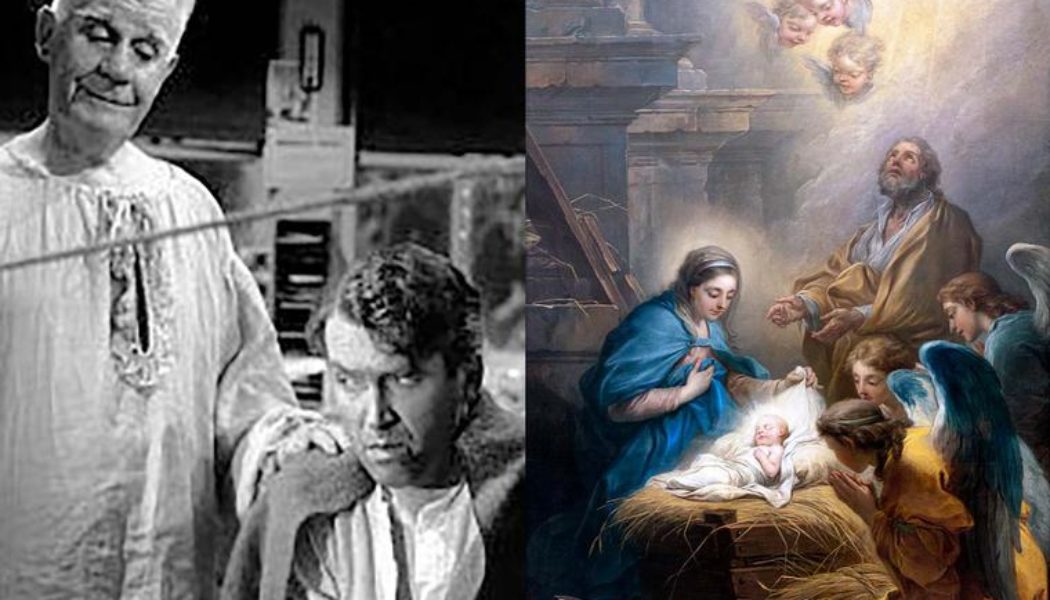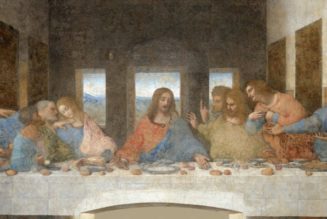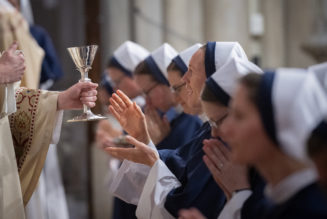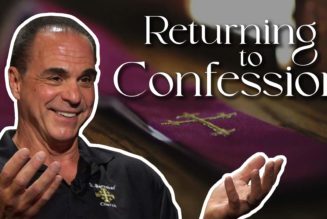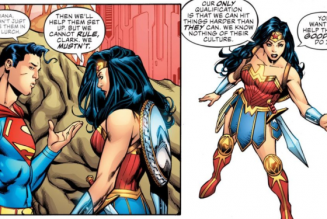
Though it never mentions the word ‘Providence,’ Divine Providence is what ‘It’s a Wonderful Life’ is all about.
It’s a Wonderful Life is an American Christmas viewing tradition. No doubt the sentimentality, the warm memories of growing up, the “feel good” and “happy ending” aspects of the film all make it a great holiday film.
But I’ve argued (here, here and here) that It’s a Wonderful Life has deeper and very Catholic meanings. Today I’d like to explore one of them: Divine Providence.
Providence is “the protective care of God.” It’s something our times are either confused about or simply forgotten.
There are many reasons for this. We live in a society that cherishes the “Enlightenment,” which tried to exclude God from human affairs. God was some wise celestial elder, a divine clockmaker who wound up the universe and set it to running by its own rules. God didn’t just rest on the seventh day. He retired.
Our concepts of Newtonian and other physics also claim they are closed systems: everything stands within them. To posit a Providential God is to suggest that the universe is not as hermetically sealed as the “scientific” viewpoint might claim.
We moderns are a bit schizophrenic. We nod our heads at the “scientific” claim about a closed universe, but we grin like children when the guardian angel Clarence shows up and rescues a suicidal and despairing George Bailey precisely because of Providence.
“Unless you become like little children …” (Matthew 18:3).
Now, the word “Providence” actually is never spoken in the movie. Neither is the word “sacrifice.” “Self-abnegation” would never have passed a screenwriter’s pen. But even if you don’t call them by name — like the famous old Prego spaghetti sauce advertising line” — “it’s in there.”
Maybe even George Bailey never thought of his “making a sacrifice” for others. Perhaps he never even thought he was doing something “good.” Sure, one of the people praying for him at the beginning of the film asks God to “give him a break” because “George is a good guy.” And even though another asks God for help because “he never thinks about himself,” George probably never did … or if he did, he pushed the thought aside as not what you’re “supposed to do.” Perhaps George simply thought his choices were “the way you should do things” or “how you ought to live” or how a “man” (remember, this is the 1940s, the era of “toxic masculinity”) should act. Maybe he never even consciously articulated them as acts of love. But they were.
St. Paul assures us, in Romans 8:28 that “for those who love God … everything works out for the good.” God’s Providence always tends to our good, whether we admit it or not, whether we see it or not. But one thing is certain: God is just. God wants our good. God is not a spiteful deity who wants to wreak revenge. God is not blind karma. There’s a line in the 1999 fantasy, Purgatory, that sums it up well: “The Creator may be tough, but he ain’t blind.”
If he chastises, it’s to bring us back to him. But even he cannot override our freedom.
We often don’t see God’s Providence. We often accuse God of “abandoning us” or “not being there when we needed him.”
But God is hesed, faithfulness. God never backtracks on his word, even if we do on ours (2 Timothy 2:13). God does not leave us in the lurch. A meditation that was very popular in the 1970s captures it. In Footprints in the Sand, a Christian who questions God’s Providence asks God, while looking at a shore that symbolized his life, why at its hardest moments he saw but one set of footprints, not two. Did God abandon him? “My precious child, I love you and would never leave you. When you see only one set of footprints, it was then that I carried you.”
God did not abandon George Bailey, even if George never even really thought about that until that fateful Christmas Eve as he contemplates killing himself. The appearance of Clarence, his guardian angel, is an obvious and explicit sign of God’s Providence, even if the appearance of Providence doesn’t quite measure up to our expectations (“Well, you look kind of like an angel I’d get. Sort of a fallen angel …”).
But the real expression of Divine Providence comes from George’s opportunity to see what his so-called meaningless life did. Yes, he sacrificed. Yes, he denied himself. Yes, by human standards, even by the standards of Bedford Falls, George might have materially done better.
And yes, because of his sacrifice, a better world was born. Yes, Bedford Falls was a human community, not an upstate Times Square. Yes, other people got a foot up on the social ladder because George wasn’t into “kiss up and kick down.” For me, the most meaningful expression of Providence was when George faces his brother’s tombstone. George still resists Providence by citing his brother’s good deed. “He saved the lives of every man on that transport.” Clarence, in reply, makes Providence explicit: “Every man on that transport died. Harry wasn’t there to save them because you weren’t there to save Harry. You see, George, you really had a wonderful life.”
Of course, Providence is not a matter of logic but of love, and it is not until the final scene with spinster Mary — perhaps a Hollywood happy ending but not without theological significance — that the redemptive power of love is fully manifest for George.
God’s Providence does not always look so crisp and clean because we insist on giving him crooked lines to write with. God’s Providence does not cancel human freedom, and the good that God works out happens in spite of our freedom. But then the real question becomes not how do we blame God for his alleged “failings,” but how do we plead for mercy for our real ones?
The message of Christmas is that Christ came “for us men and for our salvation.” “Born that man may no more die//Born to raise the sons of earth.”
If only we let go of what keeps us from him, rely on his Mercy, and say with the confidence of Providence: “Jesus, I trust in You.”
Join Our Telegram Group : Salvation & Prosperity
